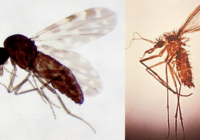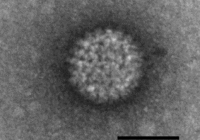BugBitten has moved to the Research Communities

As of 1st of October 2024, BugBitten is closed for new contributions. If you would like to write a blog about your research, please visit the BugBitten page on the… Read more »

As of 1st of October 2024, BugBitten is closed for new contributions. If you would like to write a blog about your research, please visit the BugBitten page on the… Read more »

Leishmaniasis cases are rising in Thailand, with recent evidence suggesting Culicoides biting midges could be potential vectors ofLeishmania parasites to humans and… Read more »

We have visited the effect of climate change on the spread of parasitic diseases in several recent blogs (including last week’s one), but the advance of this… Read more »

Krisztian Magori reports on the surprising and unexpected discovery of Aedes aegypti mosquitoes in the southern part of the… Read more »

Guodong Niu and colleagues have shown that certain leucinostatins from fungal extracts can block the transmission of Plasmodium… Read more »

Slaying creatures that have a deadly bite using silver bullets sounds like something out of a gothic horror novel but research… Read more »

What online scientific service do you use every month, week, or day? Do you know who runs it? Do you know who funds it?… Read more »

Recent research highlights the value of genomic surveillance in tracking the potential emergence of praziquantel resistance in… Read more »

Modelling suggests that Bulinus truncatus, one of the main intermediate host snails of urogenital schistosomiasis, can expand into… Read more »

Cases of eastern equine encephalitis, a rare but dangerous mosquito-transmitted disease, have been reported in New Hampshire and… Read more »